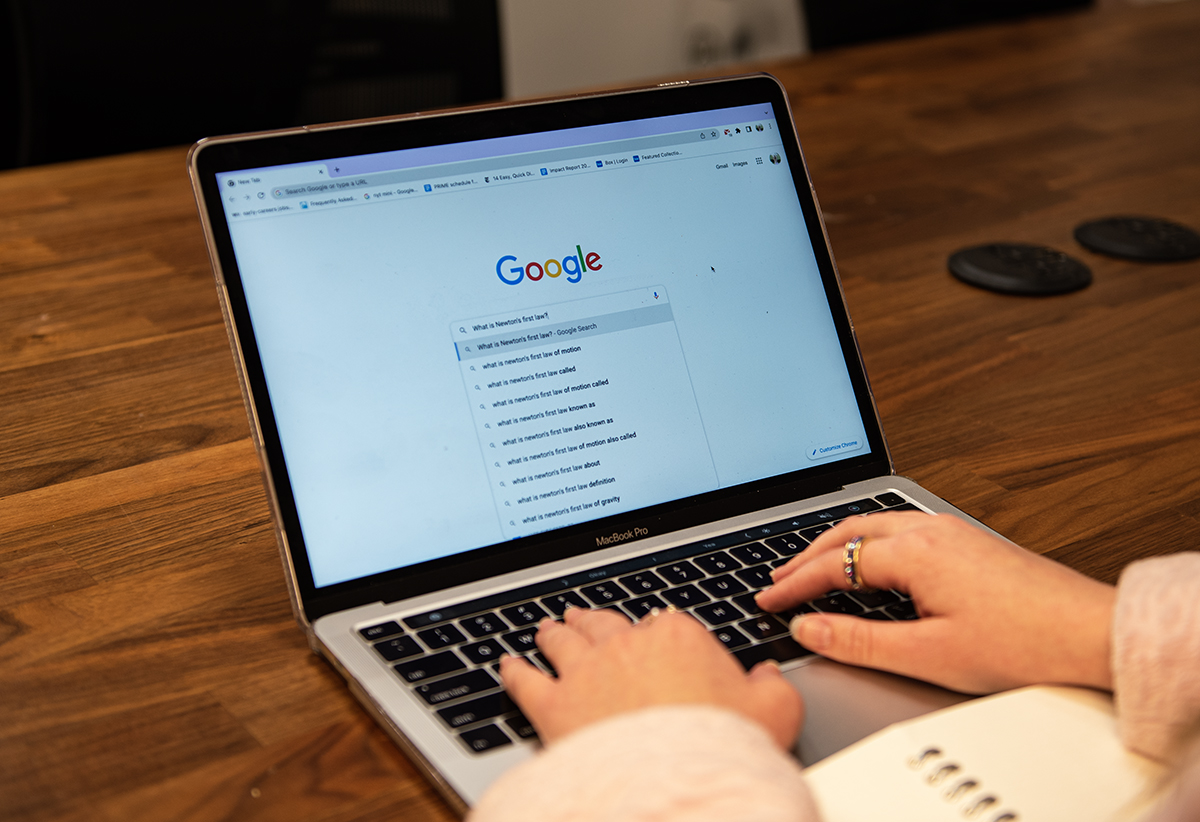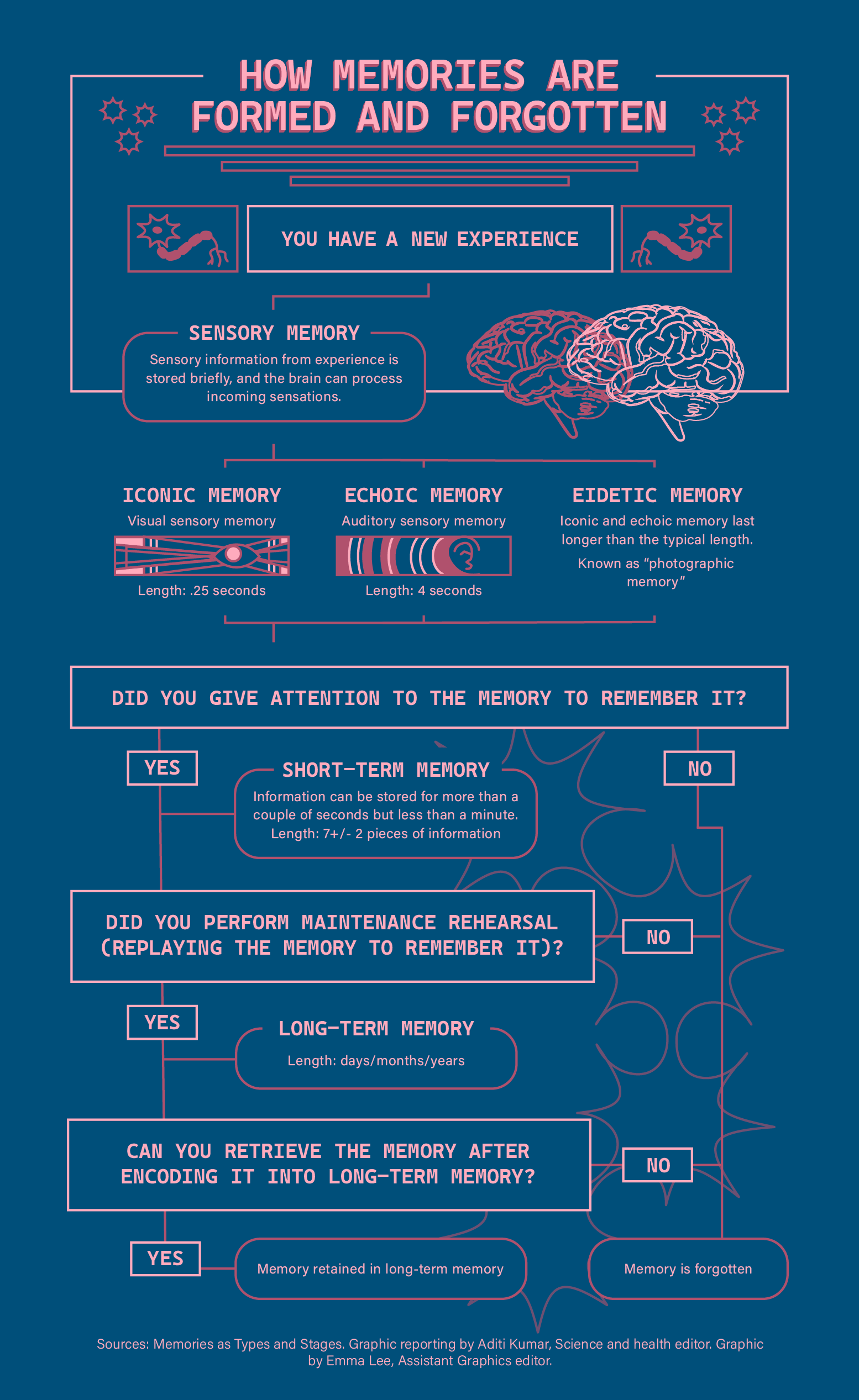UCLA researchers publish study on effects of internet on long-term memory

A person searches for an answer to a question on Google. UCLA researchers found that guessing a potential answer before googling improves retention of the correct answer. (Megan Cai/Assistant Photo editor)

By Leila Okahata
Nov. 4, 2022 12:22 a.m.
A recent UCLA study found that contemplating an answer to a question before googling it can enhance long-term memory and learning.
According to the study, published October 13, internet users have grown reliant on the internet to retrieve information. The internet’s ability to store so much information and have it be easily accessible is both its advantage and disadvantage, said Saskia Giebl, lead author of the study and a doctoral student in psychology. She was motivated to find how the internet and search engines could be used as tools for active learning, she said.
“The internet is not going anywhere,” she said. “So how can we come up with ways or solutions to turn learners into more sophisticated internet users?”
The researchers had UCLA students take an online test consisting of general knowledge questions of varying difficulty, such as “Which sport uses the terms ‘Gutter’ and ‘Alley’?” The students were then asked to either think of a potential answer for a minimum of five seconds before consulting the internet or google the answer immediately. The participants then took a memory test on those questions.
According to Stefany Mena, co-author of the study and a doctoral student in psychology, when participants had time to guess the answer before googling, they performed better on the memory tests than when they had immediately googled the answers. She said this is called the pretesting effect – testing yourself before checking the answer results in better memory of the correct information.
Even guessing the wrong answer is better than not guessing at all, Giebl said.
“You are going to make mistakes, but that actually will help you with the learning,” she said. “And I think that’s just a beautiful narrative because, for so many years, we’ve been afraid of making mistakes.”
The researchers also investigated whether googling an answer has the same effect as being presented with an answer, such as in a traditional lecture setting. According to the study, the participants underwent the thinking-before-googling test and a test in which they had to guess an answer before being presented with it. Unexpectedly, the researchers found the participants performed better when they thought of an answer before googling than when they thought of an answer before being presented with it, Mena said.
Mena said the act of seeking information through the internet may be a component of active learning.
“If you can engage with the material the most, that’s going to lead to you remembering better,” she said. “Searching for the answer, having to type in the question, and having to go through the search results, … those kinds of things like that might lead to better learning.”
Kia Hines, a fourth-year microbiology, immunology and molecular genetics student, said that when the pandemic had moved schools to online formats, it was easy to grow reliant on the internet. But when her instructors encouraged pretesting behaviors such as giving a moment for students to think of an answer after posing a question, it helped Hines grow more reliant on herself, she added.
“It allows us to think of our own answer and review the material in our head. We kind of go on autopilot if we think that we’re already going to receive the answer in the next five seconds,” she said.
After hearing the results of this study, Hines said she has grown more aware of her learning habits and encourages students to keep up to date on research that is applicable to our everyday lives.
Because the internet is still relatively young, its impact on our learning is a new area of research to explore, Mena said. The researchers are now looking to create engaging tools learners can use to encourage more self-testing behaviors, Giebl said. Giebl added that she hopes students can come to appreciate the challenge of learning and not grow too dependent on the internet to do it for them.
“If other devices are doing all the thinking and all the storing, then what’s left for you?” she said.




